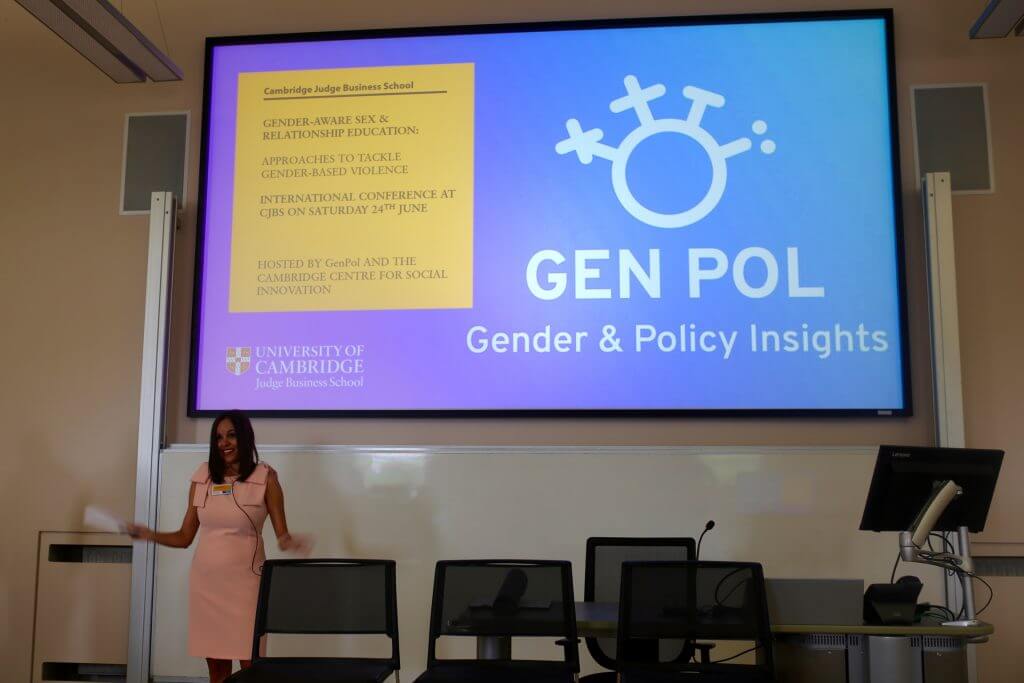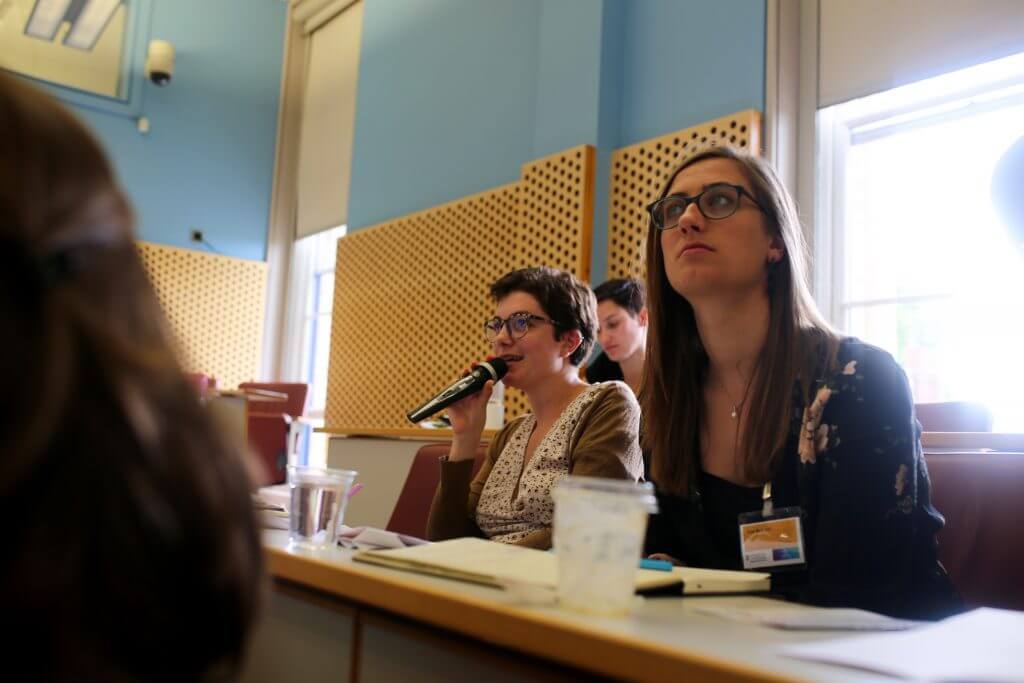To female students and faculty members alike, sexism in academia is often a big, uncomfortable elephant in the room. The problem is a complex and multifaceted one, but two aspects are particularly worthy of attention.
A more inclusive academy?The first concerns inclusivity and the actual access of women, as well as other historically discriminated against categories, to high education and high profile academic positions. The other refers to the multiple, subtle forms of everyday sexism that permeate most academic settings.
Despite the undeniable progress of the last few decades, there is evidence that numerous professional and personal challenges still affect the lives of women, and especially those from minority or disadvantaged backgrounds, within academic communities. These include very tangible issues such as the gender-based pay gap, the way in which the current publication culture [1] makes it hard to reconcile professional and family life, as well as the gendered biases influencing the evaluation of female faculty’s performances [2] documented by many recent studies [3].
However, issues of confidence, impostor syndrome [4], and above all the lack of adequate role models [5] that may act as mentors or sponsors for young female students and researchers, also play a key role. This is particularly evident in systems like Oxbridge, where, with the only exception of women’s only colleges, a young female undergrad, let alone a non-white or disable one, walks every day into a dining hall packed with portraits of old, white, upper-class men, none of whom remotely looks like her.
Furthermore, sexual assault and other forms of gender-based abuse are sadly still too common in university life. In the UK, for example, a nation-wide study recently published on the Guardian [6] shows how poorly assault on campus is dealt with by the competent British authorities, making universities an unsafe, hardly welcoming place for young women.
Constructing and performing gender in academic life
Yet there is a second, perhaps less obvious dimension of the problem, which lies in the manifold ways in which, through our own daily interactions, we ‘do’ and ‘perform’ gender in academic life. These also encompass forms of latent, perhaps ‘benevolent’ [7], but still deeply harmful, sexist behaviour.
Patterns of gendered and sexist practices emerge very clearly from the hundreds of stories that colleagues, friends and students of mine shared with me throughout my years as a student first, and a researcher and member of staff later. Women’s personal experiences may vary slightly from country to country, from university to university, but it is impossible not to notice the common traits.
In my native Italy, for instance, I often found that everyday ‘academic’ sexism has more to do with the pervasive patriarchal dynamics that pervade the society in which Italian universities are enmeshed, rather than with specific institutional features. However, once I moved to Cambridge – where feminism is a powerful, strong presence on campus and so many female undergrads are extraordinarily, almost painfully aware of the barriers they face – I was struck by a consideration. What Cantabrigian women, of every age and position, seem to fight against is the very structure they are a part of. One which, centuries ago, was specifically designed for the benefit of white, privileged men.
Again, there are the portraits in Oxbridge colleges’ dining halls [8]. There is, too, a certain traditional ‘Oxbridge’ writing and debating style, based on assertiveness [9] and the capacity to stick to a central argument, which numerous women feel uneasy with. On the other hand, uncountable female students openly admit preferring a more nuanced way of writing, one able to do justice to the complexity of a topic and juxtapose different view-points. Unsurprisingly, they report feeling forced not to be true to themselves during tutorials, examinations or lectures, and struggling to find their identity as writers and researchers.
Everyday ‘academic’ sexism, when it comes to faculty staff, can also come in the form of our current understanding of leadership [10], and the dominant narratives on what high profile academics should be and do. For example, regarding rational decision-making, assertiveness, risk-taking and other elements normally associated with masculinity as essential to achieve leading academic positions, is no doubt a gendered and discriminatory tendency. And let us not forget that women academics who, for a reason or another, chose to showcase traits identified as masculine, are often blamed for being bossy, irascible, and difficult to be managed. In a context shaped by gendered stereotypes, there is often little space for building positive, and genuine, ‘feminine’ models.
Our power to ‘undo’ stereotypes
There is, however, something empowering in coming to see gender as a set of practices and conventions that are ‘done’ and ‘performed’ daily, through the very way we interact with each other. This means, in fact, that we can make a pledge to ‘undo’ gender, or at least damaging gendered stereotypes, in our personal everyday lives.
Quotas and other forms of positive discrimination in high education, as well as programmes encouraging young women’s access to STEMs or prestigious educational programmes [11], are all policy choices I wholeheartedly agree with. My point, though, is that this is a battle we can only win by bringing concerns related to gender (and its intersections with race, disability, sexual orientation and class) into our mainstream conversations. In other words, honest talks recognising the specific challenges faced by women and other discriminated against groups need to regularly take place at every stage of academic life. Between supervisors and their supervisees, college tutors and their students, and of course among peers and female members of staff. Mental health, as well as issues of visibility and harassment, must be at the very centre of this dialogue. Similarly, young women need to be provided with safe spaces to address these concerns. They need to be put in touch with adequate role models, inspirational figures who actually look like them and are able to empathise with their difficulties, and who can act for them as sponsors outside the room.
Rome was not built in a day, and this is a long-term fight, but openly recognising conflicts based on gender and other causes of inequality, rather than trying to silence them, is most certainly a way to start.
-Dr Lilia Giugni, Teaching Associate at CJBS and CEO and co-founder of GenPol
References
[1] “The gender bias in peer reviewing reveals the sexism in academia“, Quartz, 25 January 2017
[2] “Female academics face huge sexist bias – no wonder there are so few of them“, Guardian, 13 February 2015
[3] “Gender bias in academe: an annotated bibliography of important recent studies“, LSE Impact Blog, 8 March 2017
[4] The imposter phenomenon in high achieving women: dynamics and therapeutic intervention, Psychotherapy Theory, Research and Practice, 15(3), Fall 1978
[5] “Young women need female role models to inspire success“, Guardian, 22 October 2014
[6] “Universities ‘actively covering up’ sexual assault and harassment, report says“, Guardian, 27 February 2017
[7] “The academics tackling everyday sexism in university life“, Guardian, 24 February 2015
[8] “Oxford University replaces portraits of male alumni as part of diversity project“, Independent, 4 July 2016
[9] “The impact of conversational style on girls’ learning“, Dangerous Women Project Blog, 10 July 2016
[10] “Gender bias in leader selection“, Strategy+Business, 23 December 2010
[11] Stem Women network: http://www.stemwomen.net

